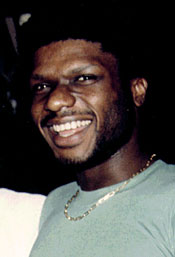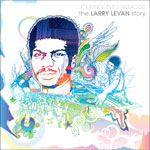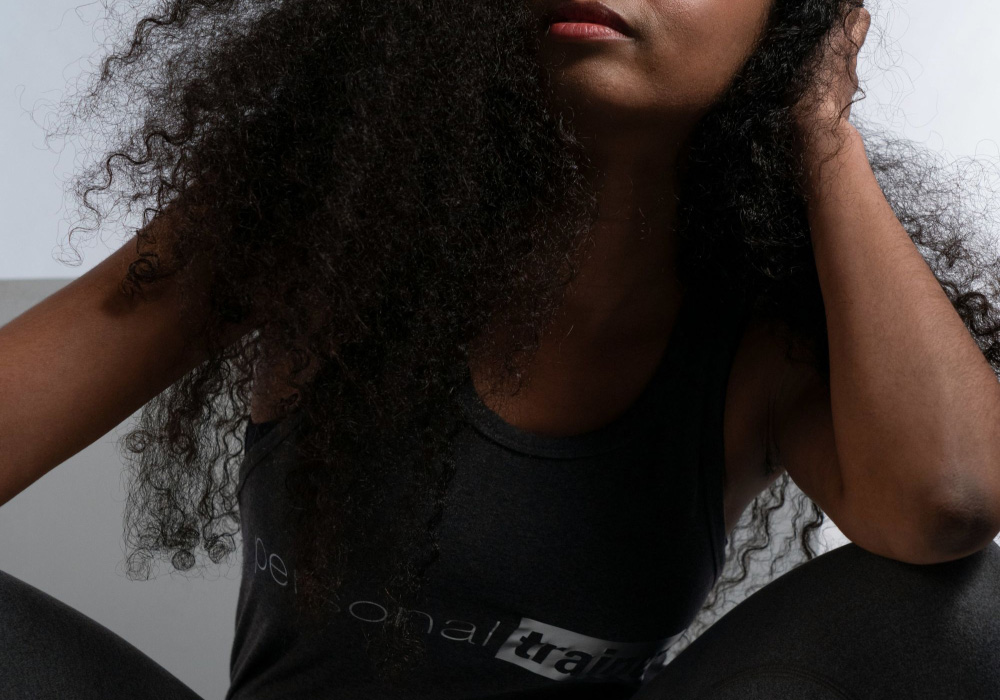
Late NYC DJ and Producer Larry Levan
Larry Levan and the rise of Hip Hop sampling
One of the more unfortunate slogans of the past 30 years is "Disco sucks." At the core of this sentiment is more than a little homophobia and racism nurtured by images of the disposable camp of The Village People or the cynical cash-ins of Rod Stewart''s "Do Ya Think I'm Sexy," among too many others. One seminal figure who proves every negative assumption about "Disco" or "Dance music" wrong is Larry Levan, a man whose work continues to be sampled by many of today’s R&B and Hip Hop stars.
In an era of greed, prejudice, and close-mindedness, the scourge of Reaganomics, and the spectre of H.I.V., the Paradise Garage (1977-1987) was a true sanctuary. Now, it is revered as the greatest club of all time.
At the epicentre of it all was Larry Levan, “The greatest DJ of all time,” “The Jimi Hendrix of the turntables,” as some have called him. Levan is now revered as a shaman, a mythic cult figure whose legacy cannot be touched. Far from being a great technical DJ alongside contemporaries like Nicky Siano or the late Walter Gibbons, Levan is revered for taking a crowd of about two thousand people and making them one. His strength was in his narrative as well as his obsession with the entire nightclub experience. Legends abound about him polishing mirror balls and keeping his disciples waiting in the cold as he tweaked the sound system to better the soul-sonic convergence waiting around the corner. Make no mistake, this was all about the music. And what music it was. The crowd at Paradise Garage was, for the most part, Gay and African-American. Although it was only members, the club attracted a mixed crowd, not based on wealth or celebrity like Studio 54, but attracted people from all walks of life.
Journey Into Paradise: The Larry Levan Story is an excellent introduction to Levan's legacy. It is a 22-track compilation CD that aptly documents the dance music culture of the era.
|
|
“All killer, no filler” sounds like a cliché in these re-issue glutted times, but every track of this CD is a winner. Personal favourites are Chaka Khan''s "Clouds,” with its'' refrain of "it’s going to rain down tears, heartaches, and fears," which sounds like the reassurance any disenfranchised person needs to hear. Patrice Rushen''s "Haven't You Heard" is an oft-forgotten chestnut currently sampled by Kirk Franklin as "Looking For You". Some of the tracks like Janice McClain's “Smack Dab in the Middle" and Five Special's "Why Leave Us Alone" are finally available on CD for the first time. Other notable rarities are Womack and Womack''s "Baby I'm Scared of You," recently resurrected by Angie Stone on "I Wasn''t Kidding," Nile Rodgers'' 1984 remix of Sister Sledge's " Lost In Music" (originally released in 1979 as an album track on the now classic "We Are Family" album) and Donald Byrd's 1981 gem " Love Has Come Around" produced by Isaac Hayes. The Paradise Garage was the place for rarities, imports and the latest unsigned underground classic. |
Thanks to Levan's friendship with legendary WBLS-FM DJ Frankie Crocker (R.I.P.), among others, The Paradise Garage became an informal testing ground where that night’s rump shaker became tomorrow’s hit.
Equally important, however, is Levan's work in the studio. The many remixes he did still resonate in today's dance music and Hip-Hop culture. Heavily influenced by Dub-Reggae as well as psychedelic classic mixes like the downtempo 1981 classic "Heartbeat" by Taana Gardner and Gwen Guthrie''s (sampled most notably by Ini Kamoze, Black Moon, DMX ), "It Should Have Been You" a Sly and Robbie production that Levan took so long remixing that Island Records indefinitely shelved it. Also worth noting are classic Levan remixes such as "I Got My Mind Made Up" by Instant Funk (sampled by, among others, Tupac and Public Enemy) and his haunting dub mix of Smokey Robinson's " And I Don't Love You."
Listening to Journey Into Paradise was a bit melancholic.
First, because I was too young to visit the Paradise garage and share in the magic. Second and most importantly, next year marks the 20th anniversary of the closing of the Paradise Garage and the 15th anniversary of Larry Levan's death; a lifetime of hedonism caught up with him, and he died at 38 of endocarditis. But I was consoled in the knowledge that the Paradise Garage was where the promises of the civil rights movement, the gay rights movement, and the idealism of the hippie counterculture coalesced for one brief shining moment. Some might not want to admit it, but the prejudices and restrictions that made The Paradise Garage such a haven still exist today. For that and the impact on today’s generation of artists, The Paradise Garage and the one and only Larry Levan deserve to be remembered and revered.





